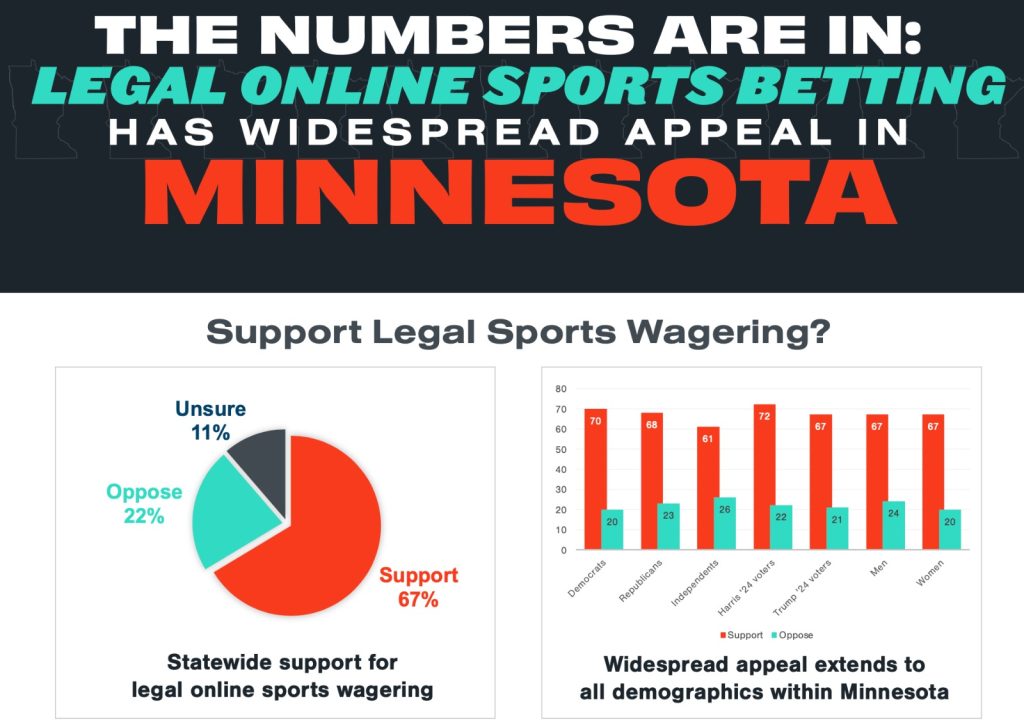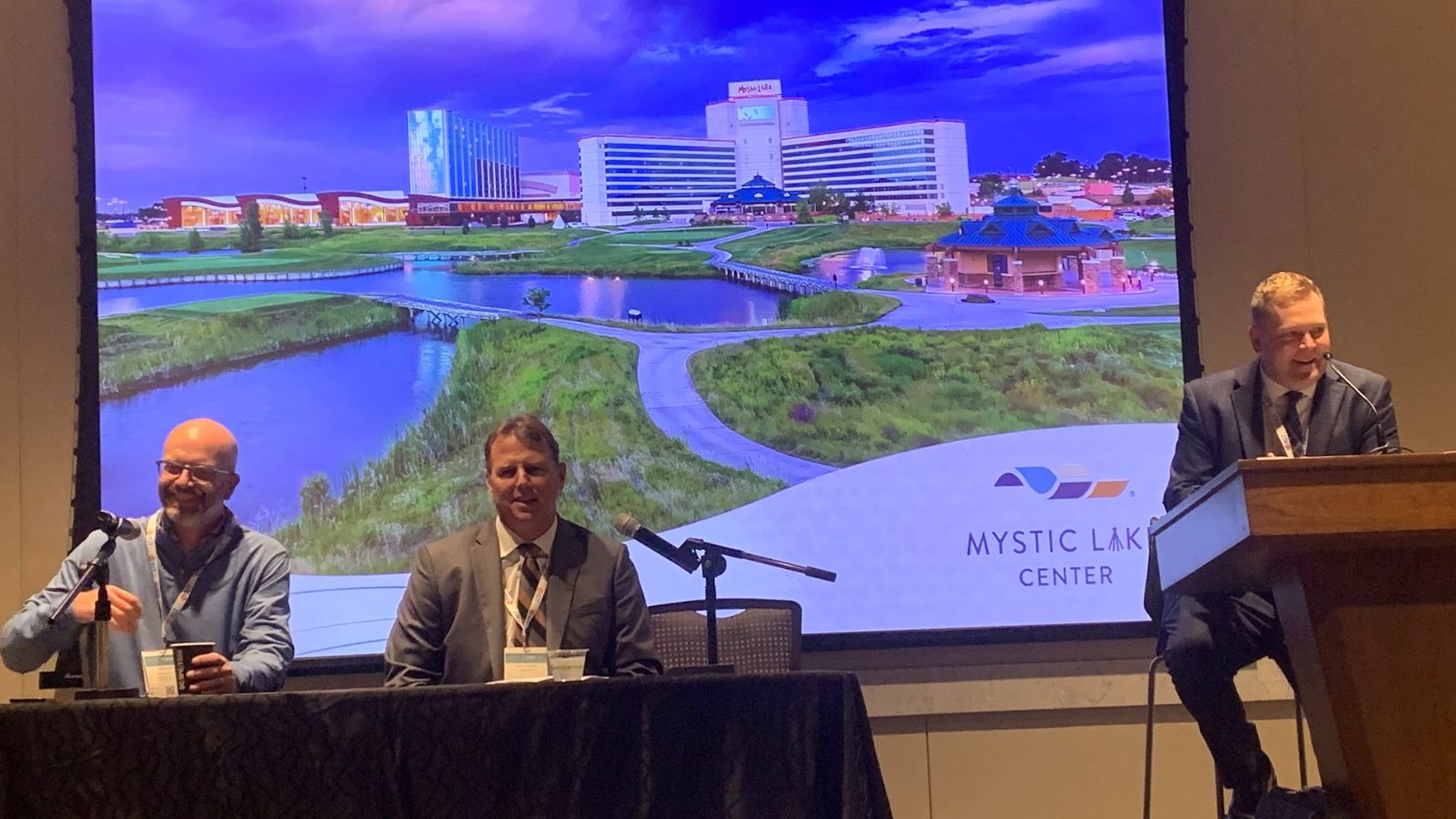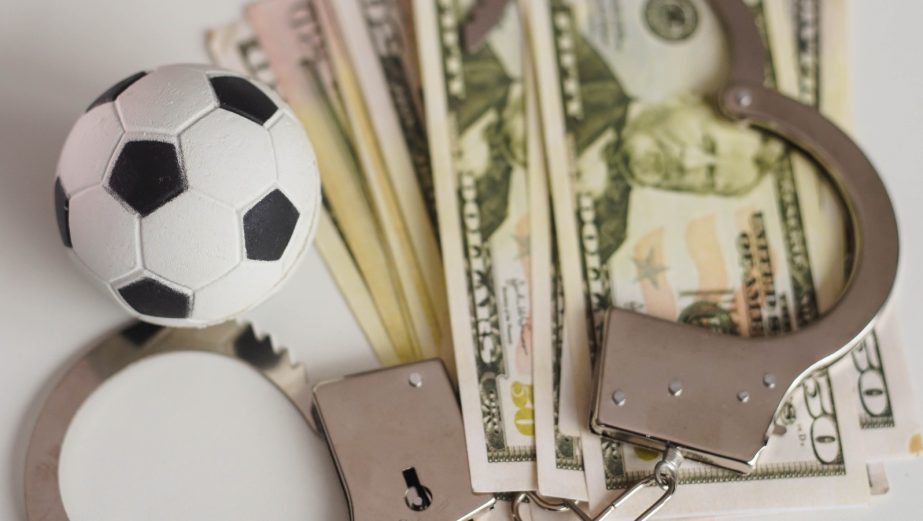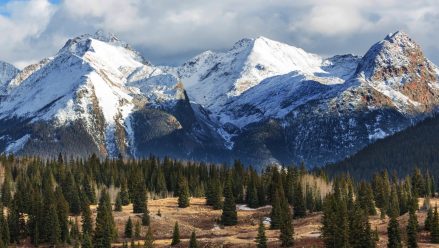PRIOR LAKE, Minn. — The road to legalized sports betting in Minnesota has been … confounding. It may continue to be.
Tuesday at the Indian Gaming Association (IGA) Mid-Year Conference, two lawmakers and a representative from the Minnesota Indian Gaming Association (MIGA) shed some light on the challenges, and appear aligned and enthusiastic about the chances in 2026.
“It’s been frustrating,” MIGA Executive Director Andy Platto told a room full of tribal leaders. “And the Minnesota Model is the one that will work.”
What is the Minnesota Model?
Unlike the Seminole Model, which involves a one-tribe monopoly for retail and statewide digital betting, the Minnesota Model is complex. It is the culmination of six-plus years of negotiating against an evolving political backdrop. And if Platto, bill sponsor State Sen. Nick Frentz, and Rep. Brad Tabke can pull it off, they’ll get across the finish line a bill that preserves tribal exclusivity and also mollifies myriad non-tribal interests, many of which have been at odds.
To recap: Minnesota has 11 tribes, including the nine gaming tribes that make up MIGA. The state also has two horse race tracks, charitable gaming, and five professional sports teams. All want part of the action. Tabke, who has a gaming tribe and a track in his district, has been critical in negotiating a path forward. Charitable gaming became part of the equation in 2024 after the state in 2023 banned the use of the “open-all” function for electronic pull tabs when tribes argued they too closely resemble slot machines. Physical pull-tab cards resemble lottery scratchers, but with paper tabs to pull open. In the electronic version, the “open-all” function would allow a player to reveal all rows of symbols all at once. Professional sports would get money for advertising and marketing.
What’s inside the bill
SF 757, which will carry over from the 2025 session, addresses all of the above parties and more. Digital sports betting net revenue would be taxed at 22%, only tribes would be eligible for operators’ licenses, and tribes would be able to contract with platform providers to operate wagering sites.
Here’s how tax revenue is broken down in the current version of the bill:
- 45% to charitable gaming to make up for the loss of revenue from banning the “open-all” option;
- 15% to a tribal “equalization fund” from which the commissioner of revenue will make payments to any gaming or non-gaming tribe that contracts with a partner that accounts for less than 10% of total Minnesota market share;
- 15% to a “racing economic development fund,” which will be used to pay out purses;
- 10% to a “sports marketing and awareness” account;
- 10% to the Department of Human Services to be used for problem and responsible gaming programs;
- 5% to a fund used to support youth sports.
The equalization fund, Tabke said, “unlocked the votes we needed in [the House] in 2024” but the political climate has changed since then. He explained that there may not be enough sports betting partners or revenue for all tribes to see a big benefit, but that the goal was to keep as much of that revenue in the state as possible.
Tragedy and politics
Tabke on Tuesday said he is a “reluctant advocate” of legal sports betting, but has two key stakeholders — Canterbury Park and the Shakopee Mdewakanton Sioux Community, owners of two casinos. A member of the Democratic-Farmer-Labor (DFL) party, Tabke said that legal wagering isn’t “really in my wheelhouse,” but the House has the votes to pass it.
Former House wagering champion Zack Stephenson laid the groundwork starting as early as 2019 when he began roadtripping across the state to visit every tribe. “There was no better advocate,” Platto said. Stephenson stepped back from championing legal sports betting two years ago and is now the House DFL caucus leader.
Minnesota’s House has 67 Republicans and 66 DFLers, but will likely be back to 67 and 67 next week after a special election to replace former House Speaker Melissa Hortman, who along with her husband was assassinated during a politically motivated shooting spree in June. The assassinations rocked the state and the legislature, and for the second time in two years neutered the legislature. In April 2024, Sen. Nicole Mitchell was arrested for and later found guilty of burglary.
Besides those events that have handcuffed the legislature, politics have also been at play with legal sports betting. In 2024, Tabke said House Republicans pulled votes for legal sports betting in retaliation over a DFL-backed bill that would have sent an equal rights amendment to voters. A similar situation occurred in Georgia in 2021 when Democrats there pulled votes for a legal sports betting bill in retaliation for a Republican redistricting bill. That state still has not legalized wagering.
Platto, Tabke, and Frentz wore their sadness Tuesday but also vowed to push forward the bill that Stephenson worked so hard for and Hortman backed. The key sticking point now, they say, isn’t in the financial details of the bill. Rather, Frentz said, some lawmakers “have a moral issue with people being able to enjoy themselves.”
Legal betting will ‘help all communities’
The Senate has long been the place where legal sports betting bills have stalled. Frentz said he believed that concerns about gambling harm and responsible gaming advocates were the roadblock. In response, SF 757 includes what Platto called “the strongest responsible gaming guidelines in the country” in addition to funneling 10% of tax revenue to problem and responsible gaming initiatives. Despite that, Platto said, he still “struggles to convince” some lawmakers of the benefits of the bill.
Frentz, also a DFLer, told Platto he would “open doors” to help Platto lobby and suggested partnering with other stakeholders to lobby together. The DFL has a one-seat majority in the Senate and might need every party member to support legal wagering.

The sell for Platto and the lawmakers is now convincing peers that legal sports betting will benefit and not harm Minnesotans. Platto teased a MIGA study showing that tribal gaming already supports 17,000 jobs — many in rural areas — and brings two million tourists a year to the state. He also said that recent polling indicates 67% of Minnesotans support legal betting.
“One of the things we never talk about in this debate is that people really want to do this and have fun doing this,” Frentz said. “The way responsible gaming is framed is not well understood by many members. But lots of people here are betting, so regulated is better than not regulated.”
Minnesota is bordered on all sides by legal gambling jurisdictions.
“I am hoping that having a tied house should be an incredible opportunity for those who are in the middle to get things done,” Tabke said. Legal sports betting “is a good way to make people’s lives better. We have to share the message of how it helps all of our communities across the state.”






